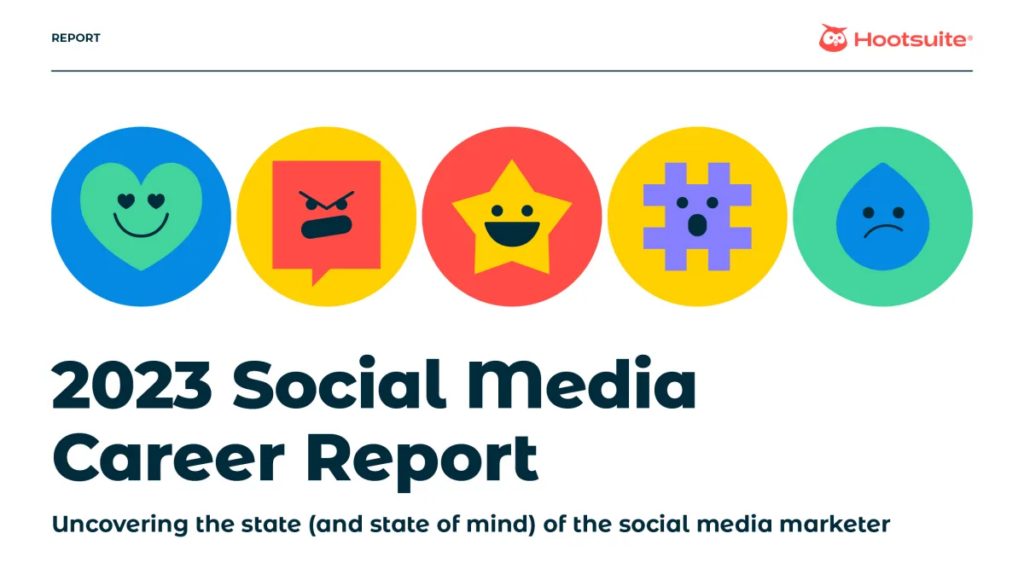With over 3.78 billion social media users around the world, the importance of business owners having a social media presence cannot be overstated. As platforms like Facebook, Twitter, LinkedIn, and Instagram continue to dominate the online sphere, small businesses and corporations alike are faced with a tough decision: Do we prioritize social media marketing or social media management, or perhaps find a delicate balance between the two?
In this guide, I’ll delve into the fundamentals of both, explore their key differences, and provide insights on how to integrate these approaches to your digital marketing for optimal results.
The Importance of Social Media in SaaS
Before we start dissecting social media marketing and management, let's highlight the pivotal role that social media plays in the success of SaaS businesses.
According to recent statistics, LinkedIn is rated as the most effective channel for driving high-quality leads by 40% of B2B marketers. So much so, that 89% of B2B marketers use LinkedIn for lead generation and 62% say it produces leads for them, emphasizing the platform's significance for SaaS customer acquisition.
Moreover, social media is a powerful tool for building brand awareness, with 93% of marketers agreeing that brand exposure is the main advantage of social media advertising.
The Fundamentals Of Social Media Marketing
Definition and Objectives
Social media marketing is the art of leveraging social platforms to promote products or services, engage with the target audience, and ultimately drive business goals.
Social media marketing has a 100% higher lead-to-close rate than traditional outbound marketing tactics! That’s a stat we love to see. The objectives of social media marketing for SaaS companies can vary, ranging from lead generation and customer acquisition to fostering brand loyalty and advocacy.
Key Platforms for SaaS
Choosing the right social media platforms is crucial for SaaS marketing success. How do you know which one to use? Like I mentioned above, LinkedIn is a goldmine for B2B SaaS companies. But there are different platforms that you can take advantage of.
X, formerly Twitter, allows for real-time engagement and updates, while Facebook and Instagram provide powerful visual storytelling opportunities.
Is TikTok necessary for your business? Well, is your target audience mostly on that platform? Understanding the strengths, algorithms, and demographics of each platform is essential so you can reach your potential customers and meet your marketing goals.
Examples of SaaS on Social
Hubspot is a great example of a SaaS company simply talking to their customers, just to talk! It may not be about the product all the time, but it encourages engagement and community.

Equally brilliant, Adobe uses its own product to create quality social content to engage with their visually and artistically gifted community on Instagram.

Hootsuite consistently situates itself as an industry leader with their career and trend reports. They’ve stacked their website with value so they’re always in the top five of search results when looking for thought leadership on social media.

Zoom used the COVID-19 pandemic to launch a campaign to encourage new users to be creative with their virtual backgrounds, garnering more and more users by the day!

Strategies and Tactics
An effective SaaS social media marketing plan involve a mix of content creation and content marketing, paid ads and paid social, and community engagement, potentially even influencers.
Content strategies may include types of content like SEO—optimized blog posts, infographics, informative white pages, visuals, and videos showcasing the value of the SaaS product. Paid advertising on platforms like LinkedIn and Facebook can help target specific demographics, while community engagement fosters a sense of connection with the audience.
The Fundamentals Of Social Media Management
Definition and Objectives
Social media management, on the other hand, revolves around the day-to-day operations of handling social media accounts. This includes content scheduling, audience engagement, and monitoring social media channels through social listening for brand mentions.
The primary objective of social media management is to maintain a consistent and positive online presence.
Role in Customer Service
Beyond marketing, social media management is a crucial component of customer service for SaaS companies. Customers often turn to social media to seek assistance or voice concerns.
In fact, 90% of consumers will buy from brands they connect to on social media as they feel more loyal toward them! Effective social media community management ensures timely responses, turning potential issues into opportunities to showcase stellar customer service.
Tools and Software
To streamline social media content and management tasks, various tools and software are available in the market. Platforms like Hootsuite, Buffer, and Sprout Social allow for the optimization of content scheduling, monitoring, and analytics. Implementing these tools help SaaS businesses stay organized, save time, and make data-driven decisions.
With social media spending recently overtaking paid search as an advertising channel, growing 25% YoY and exceeding $137 billion, you’ll want to make sure your processes are as smooth as possible. Here are a few social tools and software we recommend:
Key Differences Between Social Media Marketing And Management
The differences aren't much. But they could make or break your social strategy.
Goals and KPIs
While social media marketing campaigns are primarily focused on achieving overarching business goals, such as lead generation and brand awareness, social media management is more concerned with maintaining a consistent and positive online presence on the company’s active social media networks.
The key performance indicators (KPIs) for marketing may include conversion rates, click-through rates, and ROI. In contrast, social media management KPIs often involve response times, engagement rates, and sentiment analysis.
Required Skill Sets
Social media marketing requires a blend of creativity, strategic thinking, and data analysis skills. Marketers must be adept at crafting compelling content, understanding target audiences, and optimizing ad campaigns.
Social media management, on the other hand, demands excellent communication skills, customer service acumen, and the ability to navigate various social media profiles, and publishing content, effectively. You may also wish to brush up on some management tips to keep your team aligned.
Budget and Resource Allocation
The budget allocation for social media marketing often includes expenses related to paid social media ads, content creation, and analytics tools. In contrast, social media management may require investment in social media management tools and personnel dedicated to monitoring and responding to social media activity. Finding the right balance between these two allocations is crucial for a holistic social media strategy. You just don’t want to be part of the 8% of businesses that are completely without a social media strategy.
How To Integrate Both For Optimal Results
Aligning Objectives
To achieve optimal results, it's essential to align the objectives of social media marketing and management. Clear communication is key between teams, ensuring that both are working towards a unified marketing strategy. For example, if the marketing team is running a campaign to generate leads, the social media management team should be prepared to handle an increase in inquiries and engagement.
Creating a Unified Team
While distinct skill sets are required for social media marketing and management, creating a unified team can enhance overall efficiency. Encourage cross-training and collaboration between team members to foster a holistic understanding of both aspects. This not only promotes a shared vision but also ensures a seamless transition between marketing and management responsibilities.
Measuring Success
Measuring the success of a comprehensive social media strategy involves evaluating both marketing and management metrics. There are different social media management costs associated with different platforms and strategies. Utilize analytics tools and dashboards, like top rated Hootsuite or Sprout Social, to track marketing KPIs like conversion rates and engagement metrics, while also monitoring social media management KPIs such as response times and sentiment analysis.
Some metrics are worth reviewing daily, such as the performance of individual posts and content types. Others might make more sense to check on a monthly or bi-weekly basis, like cost per acquisition or follower count.
It's Time To Go Create Your Social Media Strategy
Social media is an indispensable tool. Not only for customer acquisition and brand awareness, but overall business success. Understanding the distinctions between social media marketing and social media management is crucial for devising a comprehensive strategy that addresses both the promotional and operational aspects of these platforms.
By aligning objectives, creating a unified team, and measuring success across both marketing and management efforts, SaaS companies can leverage the full potential of social media. Remember, it's not a question of choosing between social media marketing and management but finding the right blend that suits the unique needs and goals of your business!
Still want more? Subscribe here for insights straight to your inbox!


